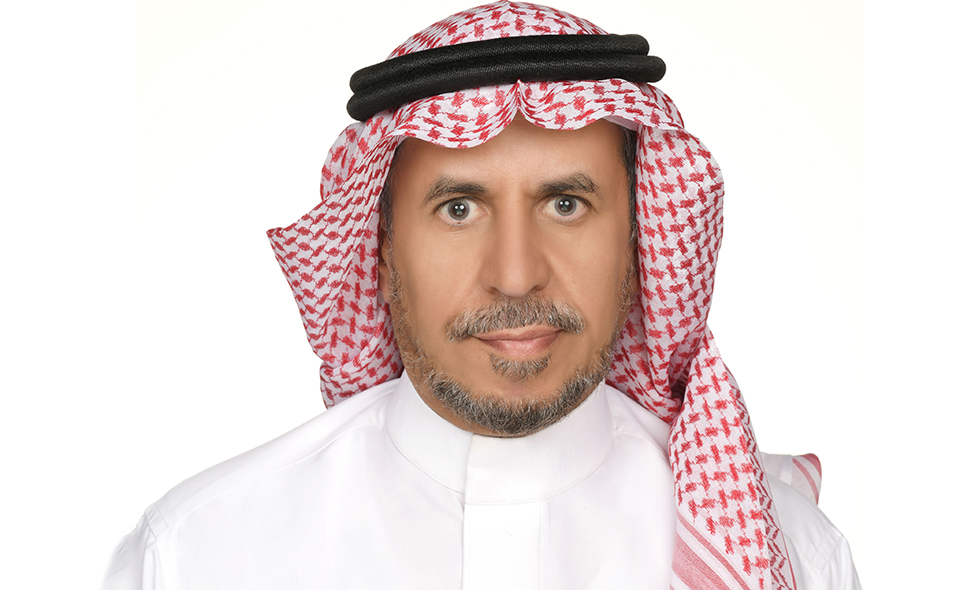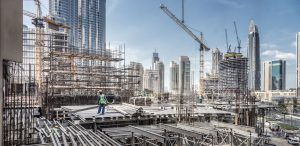Abdulaziz Aldomaiji, independent financial consultant and Fellow of the Charted Institute of Arbitrators, shares his insights on the emergence of arbitration in this article; what is the state of Saudi Arabian arbitration today, and how did it reach this state?
Could you give us a short overview of the history of arbitration in Saudi Arabia?
We can cover the history of arbitration in the Kingdom through several points.
First: Arbitration over the dispute with Britain over the Buraimi Oasis
In the late 1940s, a diplomatic and legal conflict took place between the Kingdom and Britain over the Buraimi oases. The ownership of the oases was claimed by Saudi Arabia, the Emirate of Abu Dhabi and the Sultanate of Muscat, which were under British protection, and the dispute intensified when the search for oil began in the Arabian Peninsula. In July 1954, delegates from Britain and the Kingdom of Saudi Arabia signed an agreement in Nice to refer the dispute to an arbitral tribunal that began its work in Geneva in early 1955. In September 1955, the British representative in the arbitral tribunal resigned, realising that the tribunal’s decision would not be in Britain’s favor, and thus the process of the arbitral stopped completely.
Second: Arbitration with Aramco, whose name at the time of the case was (Standard Oil of California).
The Kingdom granted a concession agreement in April 1954 to the Greek shipping magnate Aristotle Onassis to export the oil produced in the Kingdom abroad, and here a dispute arose about the exclusive right to transport Saudi oil and its derivatives and the extent to which this concession conflicted with the concession granted to Standard Oil of California regarding oil exploration on the eastern coast of the Kingdom, As a result, an international arbitral tribunal was formed to consider the dispute. The arbitral tribunal's ruling was in favor of Standard Oil of California, and the Kingdom's government accepted and implemented this ruling.
Third: As a result of the repercussions of the famous Aramco case, the various means of settling disputes (other than the judiciary) went through a long stalemate that continued for several decades, starting with the issuance of Council of Ministers Resolution No. (58) dated 06/10/1963, which prevents government agencies from resorting to arbitration without the approval of the Council of Ministers. This led to the lack of clear arbitration practices in the Kingdom.
As a result of the repercussions of the famous Aramco case, the various means of settling disputes (other than the judiciary) went through a long stalemate that continued for several decades
Fourth: The stalemate in arbitration operations continued until 1982, the year that witnessed the issuance of the first arbitration law, which was followed by the issuance of its executive regulations in 1984. The means of settling various disputes other than the judiciary then entered a lull period that continued until 2012, when the Kingdom witnessed another qualitative leap in the field of arbitration. It was the issuance of a new and advanced law with which the previous system was abolished, and this law is derived in its entirety from the model arbitration system (the UNCITRAL law), but with some changes in specific articles to make the law compatible with the legal rules as a general law in the Kingdom.
Fifth: It is worth mentioning that, in 1994, the Kingdom ratified the New York Treaty on the Recognition and Enforcement of Foreign Arbitral Awards issued in 1958.
In short, what are the main regulations and legislation that determine how arbitration is conducted in the Kingdom?
Since the issuance of the new arbitration law in the Kingdom in 2012, the government’s efforts have accelerated with regard to moving towards alternatives to settling various disputes other than the judiciary, including arbitration. Among those laws and procedures are the following:
- The new arbitration law issued by Royal Decree No. (M / 34) in 2012.
- The executive regulations of the arbitration law issued by Council of Ministers Resolution No. 541 of 2017.
- The implementation law issued by Royal Decree No. (M / 53) in 2012, which is one of the most important judicial laws recently issued in the Kingdom. Although it is primarily concerned with the implementation of judicial rulings, it was exposed to the arbitral process in one of its most important stages, which is the stage of implementation of the ruling, as Article 9 of the law contains the executive bonds necessitating the compulsory execution, including the arbitration provisions, whether national ones appended to the executive form or foreign ones.
- The Executive Regulations of the Execution law issued pursuant to Minister of Justice Resolution No. (256) of 2017.
- The Saudi Center for Commercial Arbitration, which is a non-profit organisation established by Council of Ministers Resolution No. 257, dated April 14, 2014, headquartered in the city of Riyadh. It supervises the procedures for settling commercial disputes through arbitration and mediation that the parties agree to settle under the management of the Center.
- Qualitative steps taken by the Kingdom in 2019 in order to lay solid foundations for the arbitration industry, which included a lofty order directing government agencies and state-owned companies, when they wish to settle their disputes with a foreign investor through arbitration, by working to ensure that arbitration takes place within the Kingdom in the Saudi Center for Commercial Arbitration or in one of the authorised arbitration centers.
- The issuance of the "commercial franchise" and "government competitions and procurement" regulations, which stipulate the possibility of resorting to alternatives to settling disputes, such as arbitration and mediation before government agencies and businesses based on commercial concessions.
- The Minister of Finance’s approval of 14 government contract models that included activating the option of resorting to arbitration to settle disputes, as the model arbitration clause prepared by the Saudi Center for Commercial Arbitration was included in these contracts.
- Adoption of the “commercial court” and “judicial costs” systems, which enhanced the role of amicable alternatives for settling commercial disputes, such as mediation and conciliation. The law of “judicial costs” supports resorting to alternatives to dispute settlement (such as arbitration, mediation and conciliation) by reducing the attractiveness of the litigation option compared to the arbitration option. This is because the plaintiff has to pay fees for litigation, which motivates the parties to the dispute to settle their disputes by methods of alternative dispute resolution other than the judiciary.
- The Ministry of Justice’s establishment of a reconciliation centre in the ministry, which is directly linked to the deputy minister. The ministry issued a decision according to which the heads of the courts were granted the authority to direct cases to the reconciliation offices before referring them to the judicial departments. The Ministry has granted the reconciliation minutes the status of executive bonds and launched a conciliation platform to provide the reconciliation service between the parties to the dispute electronically at all stages, starting from filing the case until reaching a result without the need to attend the court. The total cases referred to the platform amounted to 375,000 case, and the number of reconciliation documents reached 58,000.
- The Kingdom’s advancement in the Judicial Independence Index to 16th place according to the Global Competitiveness Report for the year 2019, and its advancement by eight international centres after it was in 24th place. According to the same report, the Kingdom also advanced to 17th place in the framework efficiency index. The legal settlement of disputes is ahead of this by four international centres, where it was in the 21st position.
- The increased pace of implementation of arbitration rulings as a result of this acceleration in the enactment of laws and procedures. In 2021, the execution courts in the Kingdom began implementing 204 national and foreign arbitration rulings issued in the Kingdom and 12 other countries, with a total value of 2.15 billion SR, while the average execution period has reached 13 days. Since the issuance of the arbitration and enforcement systems in 2012, the execution courts have begun to implement 35,000 requests to implement an arbitral award with a total amount of 23.1 billion SR for applications made between 2013 and 2018.
In 1994, the Kingdom ratified the New York Treaty on the Recognition and Enforcement of Foreign Arbitral Awards issued in 1958.
What risks do organisations bear when they agree to arbitration?
There are several risks surrounding the process that must be taken into account when agreeing to arbitration, including:
- The risk of not paying attention to the drafting of the arbitration agreement, whether it was an arbitration clause in a contract concluded before the dispute occurred or an arbitration agreement concluded after the dispute occurred.
- The risk of choosing an arbitral tribunal that is not specialised in the subject matter of the dispute.
- The risk of not paying attention to the law applicable to the subject of the dispute and not differentiating between it and the law applicable to arbitration procedures.
- The risk of choosing arbitration centres whose costs may outweigh the disputed amounts.
Are there circumstances in the construction industry where other forms of dispute resolution, or even litigation, might be better than arbitration?
The alternatives to settling disputes other than the judiciary vary between mediation and conciliation, and it is appropriate for the two parties to the dispute to study the appropriate means for settling the dispute between them in order to achieve the continuation of a friendly relationship. If litigation or arbitration is resorted to, the relationship between the two parties to the contract after the issuance of the judgment is often not the same as it was before the dispute occurred. This is why legislators in many countries, including the Kingdom of Saudi Arabia, direct the two parties to the dispute first to turn to reconciliation to resolve the dispute. There are many arbitration centres scattered around the world today, and they have procedures to enable reconciliation before taking any legal action.
Further, for contracts related to the construction industry – like any other contracts – mediation and conciliation are considered the most appropriate method for resolving disputes where a personal relationship between parties had a role in the emergence of the contract between them, as is the case in disputes between two parties to a contract that have a kinship or marriage relationship. Such a relationship should be maintained as much as possible, and alternatives to conflict resolution that lead to a rupture in this relationship should be avoided.
It is also appropriate for the parties to the dispute to resort to alternatives to litigation and arbitration, especially when the dispute is about minor matters in implementation and not of a fundamental dimension.
There are many arbitration centres scattered around the world today, and they have procedures to enable reconciliation before taking any legal action.
About Abdulaziz Aldomaiji
Please tell us about your journey into law.
My journey in law began when I obtained a bachelor’s degree in Sharia Sciences from the College of Sharia in 1980. After that, I obtained a higher diploma in Financial Control from the Institute of Public Administration in Riyadh in 1982. Through this diploma, I became familiar with a number of regulations and legislation that regulated the process of controlling public money. After that, I worked in the financial control department at the Ministry of Finance for 23 years. During this period, I had the opportunity to study a large number of regulations that regulate the work of the government in general and its financial aspects in particular. I also had the opportunity to participate in the study of several issues submitted by companies contracted with the government to implement a number of projects.
During my work at Saudi Post from 2005 to 2020, and by virtue of my direct supervision over the financial affairs sector, I worked with the legal department in preparing several defence memoranda submitted to the board of grievances in response to cases filed by a number of contractors who had contracts with Saudi Post. In February 2022, I became a certified Fellow of the Charted Institute of Arbitrators in the United Kingdom.
What do you consider your greatest professional achievement to date?
During my career in Saudi Post, many tangible achievements were accomplished:
- Direct supervision of the conversion of the use of the cash basis in the accounting records of the institution to the accrual basis method. This transformation has been completed and the financial statements are extracted on a commercial basis as of the financial statements for the year 2006.
- Direct ERP implementation with Oracle (implementation and actual operation since 2007), and the new Oracle Database 12c upgrade implemented in 2018.
- Direct supervision of the transfer of payments to the ERP system in the institution from the use of checks and cash disbursement to the use of direct automatic transfer to the accounts of employees and suppliers with banks using the Alahli E Corp system.
[ymal]
Can you share anything about your plans for the rest of the year?
Currently, I work as an independent financial advisor, and the plan is to transform my work into institutional work by establishing a financial advisory office specialising in providing financial advice and mediation in resolving commercial disputes.
References
To gain the context necessary for this interview, refer to:
- A television interview in 1976 conducted by Saudi TV in the series “The Memories Tape” with Prince Turki Al-Otaishan, who took over the Emirate of Al-Buraimi from 1951 until 1954
- An article entitled “Commentary on Al-Mulla’s Position on Arbitration in the Onassis Case by Dr. Saud Al-Ammar, published in Al-Youm newspaper on 02/03/2014
- An article entitled (75) thousand arbitration judgments and reconciliation minutes in Saudi Arabia published in Al-Sharq Al-Awsat newspaper, issue on February 22, 2021.
- An article entitled (35) thousand national and foreign arbitration awards worth 23 billion SR published in Al-Watan newspaper on March 06, 2022
- Elaborate research from the publications of the Ministry of Justice entitled The Regulatory Development of Arbitration in the Kingdom of Saudi Arabia. Prepared by: Sahel bin Ali Al-Ajlan (Ministry of Justice website)
- Saudi Ministry of Justice Decisions, Projects and Initiatives Vision and Impact 2015-2020 (Report) (Ministry of Justice website)
Tel: +966 555-460-119
Abdulaziz Aldomaiji is an independent financial consultant who is registered with the Ministry of Justice as a certified arbitrator in financial disputes. He is also is certified in the areas of arbitration and claims for local and international construction contracts, drafting of company and commercial agency contracts, and commercial arbitration. His past achievements include the procedural transformation of accounting records at Saudi Post, where he became Vice President of Financial Affairs.





















